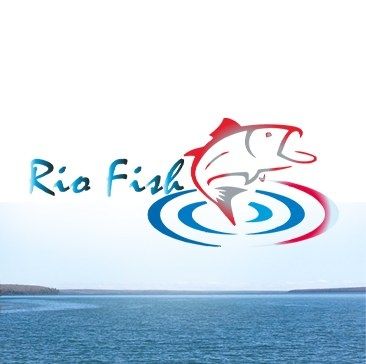Introduction to Rio Fish Ltd
Founded in 2018, Rio Fish Ltd (RF) emerged as a pioneering aquaculture enterprise based in Kenya, with a mission to address social and environmental issues in the fishing industry. The company was co-founded by Angela Juliana Odero, whose inspiration for this venture was deeply rooted in her desire to empower women in fishing communities and combat the socioeconomic challenges they face, including sexual exploitation, domestic violence, and financial dependence. RF's primary aim is not only economic empowerment but also fostering food and nutrition security through sustainable aquaculture practices.
Inspiration Behind Rio Fish
Angela Juliana Odero was motivated by the pressing need to address the challenges faced by women in fishing communities. Her concern for the well-being of these women drove her to create an opportunity for them to break free from cycles of exploitation. Rio Fish was founded to empower women economically, ensuring they could participate in decision-making processes affecting their lives and communities. The venture aims to provide women with financial independence while contributing to food security and environmental conservation. Angela's goal is to ensure that women in the fish value chain can thrive, make meaningful contributions, and uplift their households and communities.
Vision and Core Values
Rio Fish is dedicated to promoting responsible aquaculture practices, empowering smallholder fish farmers, and addressing global food security challenges. The company’s vision is to build a resilient and inclusive ecosystem where farmers, traders, and consumers thrive together, with an unwavering commitment to environmental conservation and community well-being. Rio Fish operates based on a set of core values, including:
- Sustainability: Prioritizing environmentally conscious practices to positively impact ecosystems and biodiversity.
- Empowerment: Providing women, youth, and smallholder farmers with the tools and knowledge they need to succeed.
- Innovation: Leveraging technology to enhance efficiency and resilience within the aquaculture value chain.
- Community: Fostering partnerships and creating shared value for all stakeholders.
- Quality: Ensuring that consumers receive safe, nutritious, and sustainably produced fish.
- Ethical Practices: Promoting transparency, integrity, and fair practices.
- Inclusivity: Recognizing the diverse roles and contributions within the fish value chain.
- Continuous Improvement: Staying at the forefront of industry developments through ongoing learning and adaptation.
Products and Services
Rio Fish Ltd offers a range of products and services designed to support smallholder fish farmers, traders, and consumers. These include:
- Digital Marketplace: A platform where smallholder farmers can access quality inputs for fish farming.
- Smart Farming Tool: Linked to sensors, this tool allows real-time monitoring of environmental parameters to guide data-driven decision-making.
- eCommerce Platform: Connecting fish traders with a broader consumer base, providing transparency and efficiency in the trade of fish products.
- Fish and Fish Products: Production and distribution of sustainably sourced, high-quality fish.
- Consultancy Services: Expertise in aquaculture business, offering best practices and innovative methodologies to enhance sustainability and success.
- Fish Aggregation: Aggregating fish from smallholder farmers to reduce post-harvest losses and ensure a fair supply chain.
- Capacity-Building Initiatives: Empowering women in the fish value chain with skills and knowledge to improve their practices and adopt environmentally friendly approaches.
Revenue Generation and Business Model
Rio Fish operates a sustainable business model that focuses on building the capacity of smallholder farmers, aggregating their fish, and distributing processed products to women traders. The company generates revenue through various streams:
- Charging a nominal fee for transactions conducted on its digital platform, which supports smallholder farmers and traders.
- Processing and distributing fish to different market segments, including women traders, restaurants, and consumers, adding value to the products and ensuring market accessibility.
- Operating a model cage fish farm that serves as both a training center and a supplemental supply source for the aggregation center.
- Empowering smallholder farmers and women traders with access to digital tools, quality inputs, and market linkages to improve their productivity and profitability.
Target Market
Rio Fish strategically targets two key segments: women and youth in the fish value chain. The company primarily focuses on women involved in fish farming, trading, and processing, particularly those in rural and underserved communities. Youth are also targeted for engagement in fish farming, entrepreneurial activities, and the use of digital platforms. By focusing on these underserved groups, Rio Fish aims to address gender disparities, promote youth engagement, and contribute to the sustainability of the fish value chain.
Meeting Customer Needs
Rio Fish actively engages with its target market through needs assessments, training programs, and capacity-building initiatives. The company's digital platform is designed to be accessible to women and youth with varying technological literacy levels, ensuring inclusivity. RF also promotes financial inclusion by facilitating access to capital and ensuring fair trade practices for women traders. The aggregation of fish from smallholder farmers provides market access and reduces post-harvest losses, while the eCommerce platform expands market reach for traders.
Differentiators in the Industry
Rio Fish stands out as a locally women-owned and women-led enterprise, with a unique focus on empowering women in the fish value chain. The company addresses gender-specific challenges, such as sexual exploitation and financial dependency, by promoting economic independence and social change. Rio Fish's commitment to responsible aquaculture practices and environmental sustainability further sets it apart from competitors, as does its innovative use of digital platforms for procurement, smart farming, and e-commerce.
Achievements and Milestones
Since its inception, Rio Fish has achieved several key milestones, including:
- Operationalizing the Opapo Fish Plant.
- Mobilizing 200 women into fish farming.
- Aggregating fish from 700 smallholder farmers and supplying over 500 women traders.
In recognition of its impact, Rio Fish was nominated for the 2021 AWIEF Social Entrepreneur Award.
Challenges and Overcoming Them
As a female founder in a male-dominated industry, Angela Juliana Odero has faced challenges such as rejection and difficulty raising finance. Despite these obstacles, she has remained resilient, fighting to keep Rio Fish afloat and mentoring other women along the way. Resistance to women empowerment in some communities was addressed through engagement programs and mentorship initiatives. Environmental challenges, such as climate change, were mitigated by investing in climate-resilient infrastructure and eco-friendly farming practices.
Long-Term Vision
Angela envisions Rio Fish playing a pivotal role in transforming the aquaculture landscape while uplifting communities. Her long-term vision is anchored in sustainability, empowerment, inclusivity, and technological innovation. By continuing to invest in digital platforms, community engagement, and environmentally sustainable practices, Rio Fish aims to achieve lasting growth and impact.
Advice for Aspiring Entrepreneurs
Angela advises aspiring entrepreneurs to align their businesses with their passion and purpose, as this resilience helps them navigate challenges. She emphasizes the importance of staying open to learning and adapting, building strong community relationships, and integrating sustainability into business models. For entrepreneurs in aquaculture or similar sectors, she highlights the transformative power of technology in driving innovation and success.




